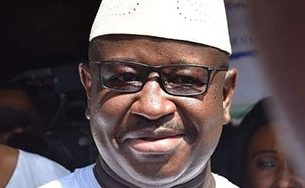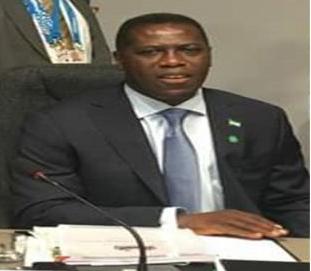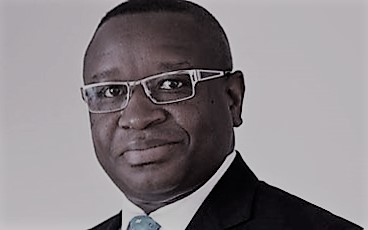The Good The Bad And The Ugly (Part 2)
In part one of this article, I pointed out the parameters on which President Dr Ernest Bai Koroma (in photo) was awarded the 9th most effective President in Africa as well as the 3rd most effective in terms of leadership and performance in the West African sub-region by the East African Magazine. I also brought out clearly the reasons why President Koroma is being positioned as the foremost defender, protector and promoter of human rights above all the other leaders in the 51 years plus history of Sierra Leone since Independence.
In this part, I shall endeavour to compare the human rights record of President Koroma against that of Sir Albert Margai.
Under the reign of His Excellency Dr Ernest Bai Koroma, as I have noted, there are no political prisoners, no journalist is in jail, and no person has been executed since 2007. I have shown that there were political prisoners during the reign of Sir Milton Margai. Even the opposition APC leader, Siaka Stevens, was locked up at the Pademba Road Maximum Prisons on Independence Day, 27th April 1961. No opposition leader or member has been incarcerated in prison for his political views on the socio-economic and political condition of the country since the human rights defender, President Koroma arrived on the scene. Absolutely not!!!
Sir Albert Margai came to power amidst very controversial circumstances as his succession to his half-brother as Prime Minster was stoutly opposed by many within the SLPP. Most of those who opposed the manner in which he became Premier, since he never acted as Prime Minister, were denied the SLPP symbol in the subsequent general elections in 1967. Because his manner of succession to the throne was viewed by many in both political and other circles as illegitimate, Sir Albert went on an unabated spree to silence and pulverize opposition to his rule, which turned out to be very short-lived.
According to Professor Gustav Deveneaux in his work, “Power Politics in Sierra Leone”, page 67, “One of the most transparent results of the Albert Margai regime was the continuous erosion of personal liberties and security between 1964 and 1967”. He also noted that in his desperate bid to castrate all opposition to his rule, “Sir Albert showed very little restraint by indulging in menacing pronouncements very openly against the APC supporters or anti-government elements. On one occasion speaking at Gbangbatoke Sir Albert threatened to ‘shoot down his opponents; a speech that was broadcast on national radio”. C. Allen has also noted in his book, “Sierra Leone Politics since Independence”, on page 313, that, Sir Albert Margai once openly declared that, “I am now ready to turn my guns on the opposition and pulverize them”.
Moreover, it is unquestionably clear that during Sir Albert’s rule, journalists were given little space to go about their work unhindered. As Allen quite aptly noted, the APC mouthpiece, the We Yone newspaper, was severely attacked and censored with its editor, “Ibrahim Bash Taqi and one of the chief contributors, Dr Sarif Easmon, experienced desperate and irregular attempts by Sir Albert to stifle their work.” Consequently, “In October 1965, parliament passed a law which established that a judge alone could sit in cases regarding the press”. This was an unmistakably clear message that Sir Albert was not just intolerant of opposition, but also that he had scant regard for the civil liberties of the people to free speech, necessary ingredients for democratic good governance to thrive.
A renowned political pundit has observed that Sir Albert Margai used his position to exploit a number of electoral malpractices to eliminate opposition to his rule by forcing parliament to pass a law that prescribed that any Member of Parliament who failed to attend sessions for more than 30 consecutive days without reasonable excuse would lead to the loss of one’s seat.
Following riots that took place during the by-election which preceded the Freetown City Council elections, an area that was viewed as being overwhelmingly in support of the opposition APC, “Four APC MPs were jailed for a year”. Although this significantly reduced the APC representation in parliament, Sir Albert Margai went on to prevail on parliament to review “its Standing Orders so that absence for more than thirty consecutive days of a session without reasonable excuse led to loss of one’s seat. Since imprisonment was not a reasonable excuse, the four (MPs) lost their seats.” (C. Allen, S/L Politics Since Independence, p.313).
To further castrate opposition to his despotic rule, Sir Albert out of nowhere announced the discovery of a coup plot by members of the army aimed at assassinating him, Brigadier David Lansana, some SLPP leaders and civil servants. This did not only encourage him to declare a State of Emergency in February 1967, but also a deliberate attempt to edge the opposition during the general elections that took place less than a month in March of the same year.
As records have revealed, “In sections of the country the elections were conducted under a State of Emergency.” On nomination day, as also reported, “There was violence in Kono, where one of the seats was declared unopposed for the SLPP and another five declared unopposed elsewhere”. “None of the disqualification was on serious grounds and SLPP candidates with similar faults in nomination papers were not disqualified.” Even within the SLPP, Sir Albert sought to influence the nomination of his friends to get the SLPP symbol, and sitting MPs, who opposed his succession to the premiership, were denied the SLPP symbol. This later had disastrous consequences for the SLPP at the general elections in March 1967. It has also been recorded that, because the SLPP under Sir Albert Margai heavily relied on Chiefs rather than holding mass rallies to woo the electorate, a lot of intimidation and fraud characterized the 1967 general elections.
As a result, Paramount Chiefs didn’t only intimidate APC supporters but actually received extra ballot papers to be distributed among local chiefs on the SLPP’s behalf. P.C. Bai Kompeh Yek for instance, distributed over 1,000 ballot papers he received from the SLPP candidate in Port Loko South-West. Many APC supporters were also prevented from campaigning, and in some areas of the country, like in Moyamba Central, they were arrested and beaten, while others were banished from the area.
“In Kenema-North a local chief threatened to expel all strangers and withdraw mining licenses, while in Kenema-West non-Mendes had their market fees raised or were prevented from harvesting and wine-tapping (a Limba activity),” C. Allen page 318. SLPP supporters also fired on an APC vehicle out of desperation and despondence.
When you take all of this into account, one notices a flagrant frustration of opposition members to go about their work unobstructed. But it’s now clear that between President Koroma and Sir Albert Margai, President Koroma is a far better defender, protector and promoter of human rights in this country since Independence.
Under this government, journalists are freely speaking their minds on scores of radio stations, including community radio stations; journalists are writing and criticizing in over 50 newspapers without the President lifting a finger. Under Sir Albert Margai and Sir Milton Margai none of this took place as journalists were harassed for merely asking questions let alone criticizing the status quo. Among these great leaders, His Excellency Dr Ernest Bai Koroma is the GOOD (upper), Sir Milton Margai GOOD (Lower) and Sir Albert Margai is BAD with Grade D for his enactment of the Public Order Act of 1965. He started all the tribalism and flagrant abuse of the civil liberties of the people of this country.
In part 3, I shall be taking a cursory look at the reign of Dr Siaka Stevens in comparison to that of the current Head of State, President Ernest Bai Koroma in their attempts to defend, protect and promote human rights in Sierra Leone since Independence in 1961.
By Jarrah Kawusu-Konte
Stay with Sierra Express Media, for your trusted place in news!
© 2012, https:. All rights reserved.






Mohamed Bangalie
/
This piece and argument could have hold if we are talking of the same time and circumstances. As have been stated in many places by critical and fair minds, President Koroma came to the helm of things at the right time. The country having experience one of it bloodiest history, is wary of any form of violence and intimidation. But for the two industrial strikes this year at Bumbuna and Lunsar, there have been no serious demonstration against the Koroma regime despite the fact that most people are not happy with his handling of affairs in the country. This is simply because the present generation just emerging from war are still wary of violence and knowing the history of the APC are cautious of the type of political actions they should take against Koroma and his regime. Look at the mere industrial demonstration in an area considered to be Koroma strong hold- One innocent woman gun down on the spot, 11 wounded with one more dieing in the hospital and you are saying Koroma is tolerant? He is because none has taken action that he sees as direct threat to his throne. Sir Albert that you classed as the most intolerant, despite the opposition from within and without his party and the opposition never closed down the opposition mouth piece or killed somebody demonstrating for his right (and boy, there were many demonstrations, some for flimsy excuse, during his short reign). The two gentle men that you cited Dr. Taqi and Easmon, practice a kind of journalism that even Koroma I am sure would not lived with. They preached tribalism, lies and all kind of deceit, casing people to kill goats, smear their blood and would later write that Sir Albert and his men committed cannibalism. No body have gone to such extremes with Koroma. A testament of the kind of journalism practiced by Taqi and Easmon was quickly rejected by the very party and person they helped propelled to power who sent them to their graves when they attempted to export their kind of journalism to him. Sir Albert never dreams of or thought of that.
6th July 2012If Koroma was tolerant, why did he first send thugs to burn down the opposition radio in this 21st century when information is like food? When he could not succeed, he used his government powers to close it down. Had the opposition taken to the street for that, I am sure the police were ready to unleash on them. Why did he send his one of his information attaché to stab Sitta Turay of New People in the neck but for the grace of God Sitta would have been history today? Have you forgotten so soon? There are lots to catalogue to show that you are just working for your monthly emolument but not the truth. You need not put people to the firing squad when there has been no coup plot against you. You need not jail journalist when the have not written any seditious libel against you but you can silence the press by making it impossible for those not willing to lick the crumbs from your dining table to go hungry.